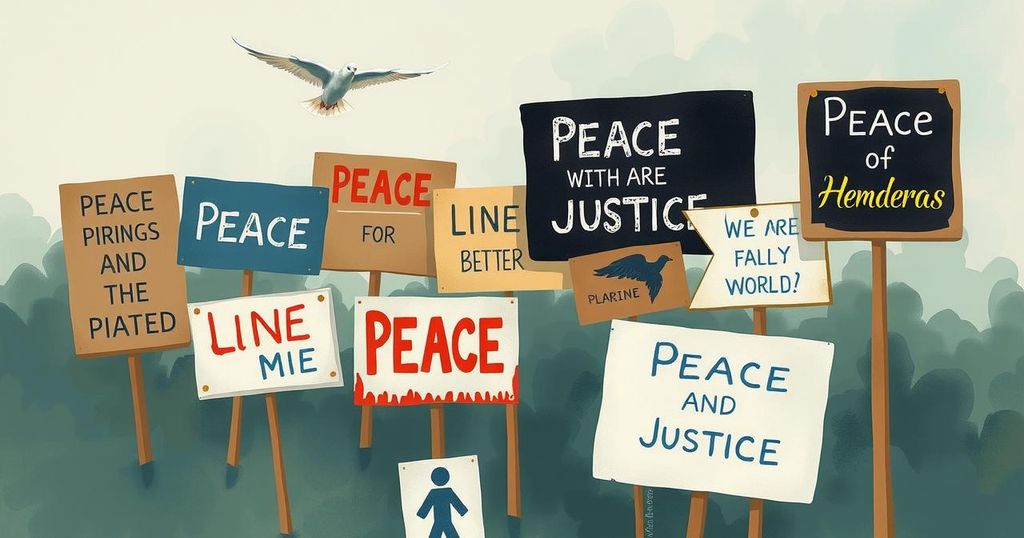President Trump remarked that the arrest of Palestinian activist Mahmoud Khalil is the first of many such actions against dissenters in response to protests on college campuses. Khalil’s lawyer asserts his rights have been violated and claims anti-protest tactics are being employed by the government. This incident raises significant concerns regarding the implications for free speech and student activism.
In a recent development, President Trump stated that the arrest of Mahmoud Khalil, a Palestinian activist previously involved in protests at Columbia University, signals the beginning of a larger government crackdown on dissenters. His remarks were made via a post on Truth Social, indicating a commitment to curbing what he deems pro-terrorist and anti-American actions on college campuses nationwide. Trump alleged that these protests are the work of “paid agitators” rather than genuine student activism.
Khalil was arrested by Immigration and Customs Enforcement (ICE) agents, with authorities contending that his student visa had been revoked, although his attorney, Amy Greer, countered that he is a U.S. green card holder. Following the arrest, Greer filed a petition challenging this detention, asserting that Khalil’s wife, a U.S. citizen, faced threats of arrest during this incident. She criticized the targeted detention of Khalil as an affront to student activism and political expression.
In conclusion, President Trump has framed Mahmoud Khalil’s arrest as a harbinger of continued government actions against perceived threats in academic spaces. His administration asserts it will pursue the deportation of individuals deemed to support terrorism, raising significant questions about First Amendment rights. The response from Khalil’s legal team and advocacy groups highlights concerns over the potential suppression of free speech and the use of immigration enforcement as a political tool.
Original Source: www.cbsnews.com




